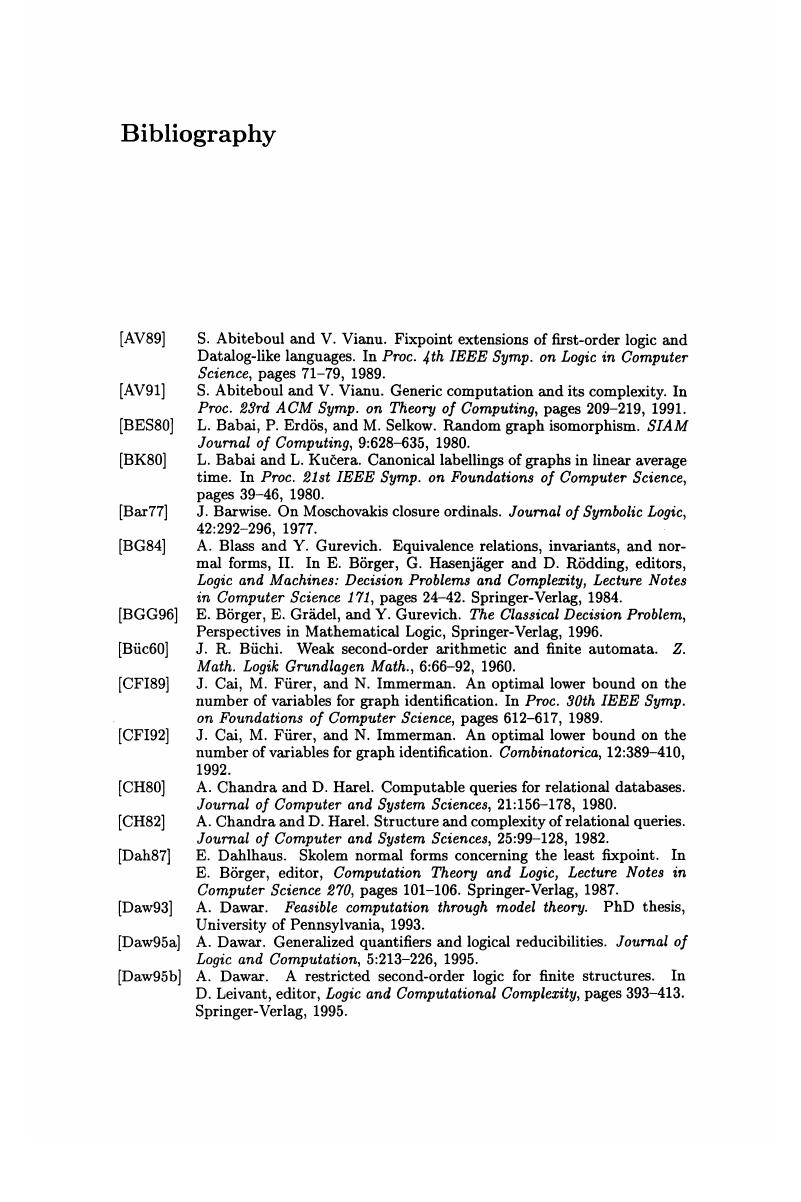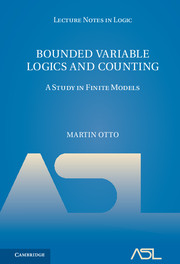Bibliography
Published online by Cambridge University Press: 24 March 2017
Summary

- Type
- Chapter
- Information
- Bounded Variable Logics and CountingA Study in Finite Models, pp. 177 - 180Publisher: Cambridge University PressPrint publication year: 2017



